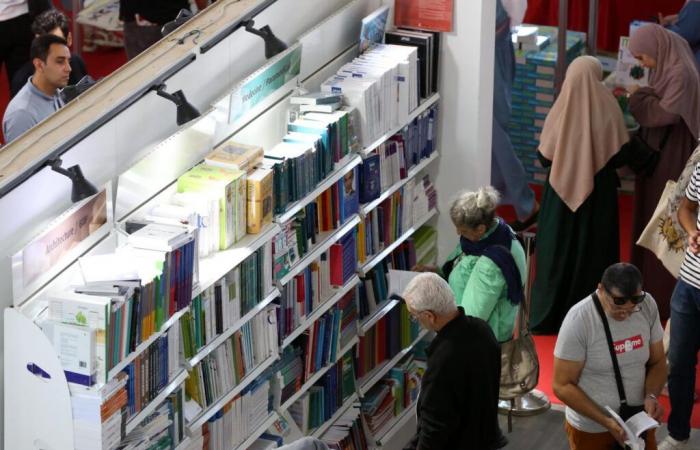This was the trademark of the Cheikh bookstore, in the center of Tizi-Ouzou: book signings, which allow the meeting between an author and his readers, exchanges and sometimes debates. But this institution in the second city of Kabylia had to abandon its tradition when, Monday October 28, the local authorities imposed prefectural authorization for any invitation from an author to come and sign his works. Four days earlier, the establishment announced the cancellation of a signing session planned with the Algerian-French author Hedia Bensahli for her book Jewish Algeria. The other me that I know so little. The result of an intense controversy on social networks around this historical essay on the Jewish presence in the country from Antiquity until independence, in 1962, published by Éditions Frantz Fanon and prefaced by the French novelist Valérie Zenatti .
Multiple accusations on the Internet
Controversy broke out as soon as the meeting at the Cheikh bookstore was announced. The kick-off goes to a journalist from state television who, in a post on Facebook on October 23, denounces a “provocation for the Algerians” and a “heinous actfor our brothers in Gaza.” Some intellectuals and members of the political class, including a former minister, go further by criticizing “an attempt to normalize” Algeria's relations with the Hebrew state, which it does not recognize. “Algeria has never been and never will be Jewish!” »castigate other Internet users, including journalists. “My essay focuses on the long history of Algeria, regardless of what is happening in other regions of the world. Its publication, a few weeks before the events in the Middle East, was due to a coincidence that I could neither anticipate nor control; the book was already on sale when the war broke out”however explained the author last February in an interview with the French-speaking newspaper Algerian Evening.
The story doesn't end there. In an emergency, an Islamist deputy contacted the Ministry of Culture to ban the two planned signing sessions – that of Tizi-Ouzou and another to be held in Algiers on October 26 – and remove the copies from the shelves. Police raids have taken place in some bookstores since. As for the publisher, Amar Ingrachen, he will be placed in police custody for three days. In the process, justice opens an investigation to understand how the work could have been published and recorded by the National Library without being noticed, in September 2023. In its eyes, it calls into question one of the “national constants”these bases of Algerian identity sealed in the marble of the Constitution, which affirms that the Nation is Arab, Muslim and Berber.
Series of attacks on freedom of expression
This pillory recalls the attacks which, last July, targeted the novel Houariaby Inaam Bayoudh, accused of containing “obscene words” in a flood of messages on the Internet which led the publisher to close its doors. It is part of a more general context of an attempt to muffle any literary voice that distances itself from the established order, on the religious ground, of morals, of politics… Thus, on the eve of the International Book Fair of Algiers (Sila), which is due to open its doors on November 6, pressure is increasing on publishers and writers deemed iconoclastic. Arezki Aït-Larbi, head of Éditions Koukou, knows something about it which, like last year, is prohibited at Sila – as in other salons. He notably published The Last Days of Muhammadby the Tunisian historian Hela Ouardi, presented as “the portrait of a man restored to his historicity and his tragic dimension”. A questioning of the centuries-old story about the prophet. Gallimard is no exception. The editor of Hourisa novel in which the French-speaking Algerian writer Kamel Daoud criticizes the official treatment of the memory of the Black Decade, was also banned at Sila.
For Arezki Aït-Larbi, these decisions targeting publishers and authors fall under the” arbitrary “. He sees behind them a “censorship committee” who does not tell his name to the book directorate of the Ministry of Culture and who would be responsible for “attack any free speech”. “Any activity parallel to that of institutions, such as writing or publishing a book, is considered insidious and therefore to be prohibitedregrets a journalist writer who requested anonymity. Already the literary scene is poor in activity, if we close the few existing spaces, there will be nothing left. It is quite simply freedom of expression that the authorities want to attack. » They have never communicated on these subjects.






